‘We have no strength left’: Families of hostages in Gaza begin 5-day march to push for their release
The families will walk through Israeli cities to Jerusalem to urge the government to close a deal to bring the hostages home
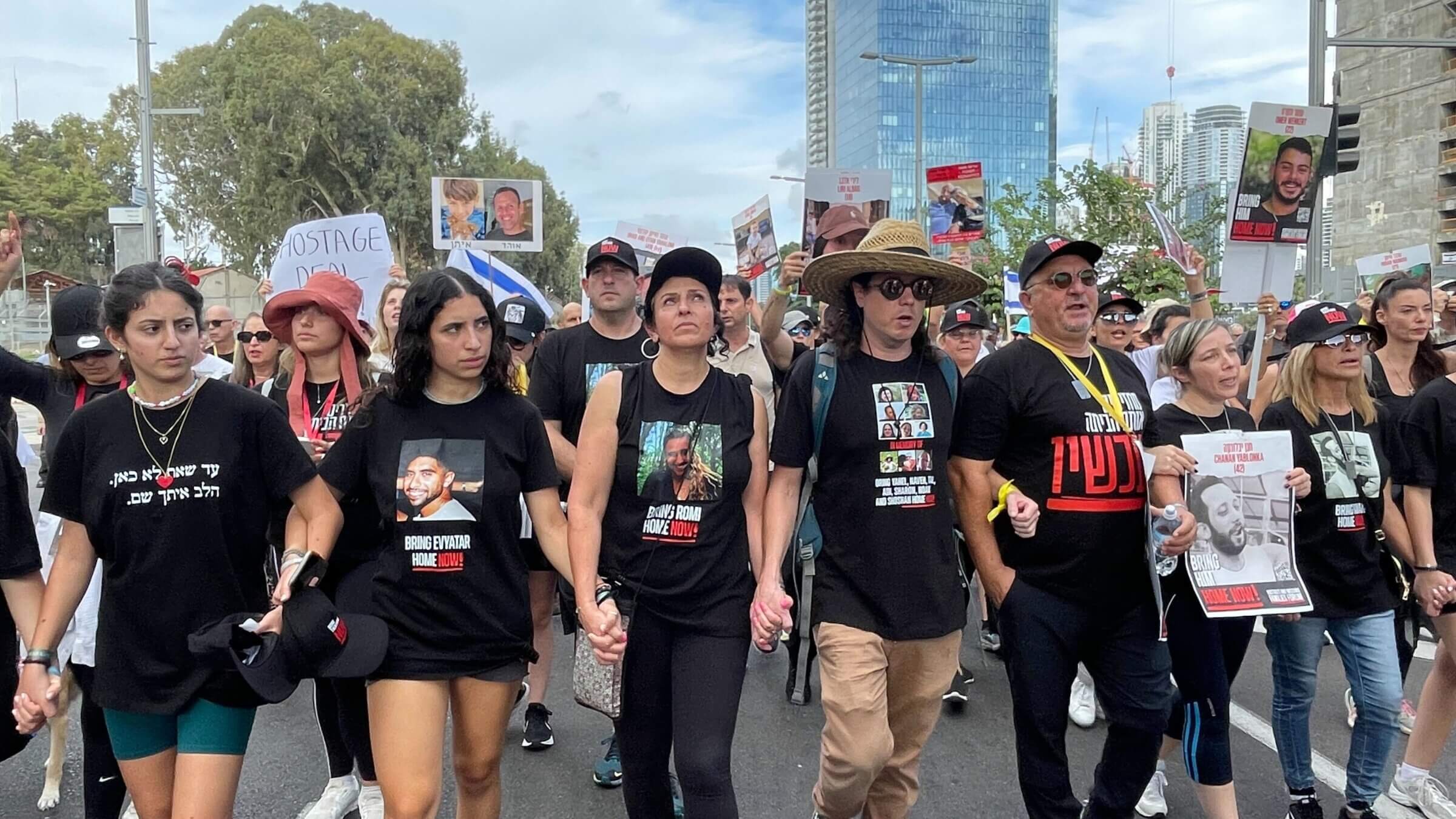
Marchers for the releases of hostages held by Hamas on Nov. 14, 2023. Photo by Jacob Kornbluh
TEL AVIV, ISRAEL — Several dozen families and friends of Israelis held hostage by Hamas in the Gaza Strip began a five-day march from Tel Aviv en route to Jerusalem Tuesday to pressure the government to prioritize the release of their loved ones.
Shelly Shem-Tov, whose son Omer was abducted with others from the Nova music festival in southern Israel on Oct. 7, said the agony of not knowing about her son’s whereabouts and condition in captivity was unbearable. She pleaded for help from Prime Minister Benjamin Netanyahu and the nation’s war cabinet. “We have no strength left,” she said at a press conference held at the now-called “Hostages Square” outside Tel Aviv Museum of Art.
“We are running out of time,” said Yuval Haran, a resident of Kibbutz Be’eri. Seven of his family members have been held by Hamas for 39 days in Gaza.
The protest march comes amid reports of a potential deal between Israel and Hamas that would include the release of most women and children among the about 240 hostages abducted by the terror group. Hamas has indicated it is willing to release some 70 women and children in exchange for Palestinian women and young people in Israeli prisons and a five-day cease-fire in the conflict. Hamas killed 1,200 people in Israel on Oct. 7, touching off a war in which more than 11,000 Palestinians have died, according to Gaza health officials.
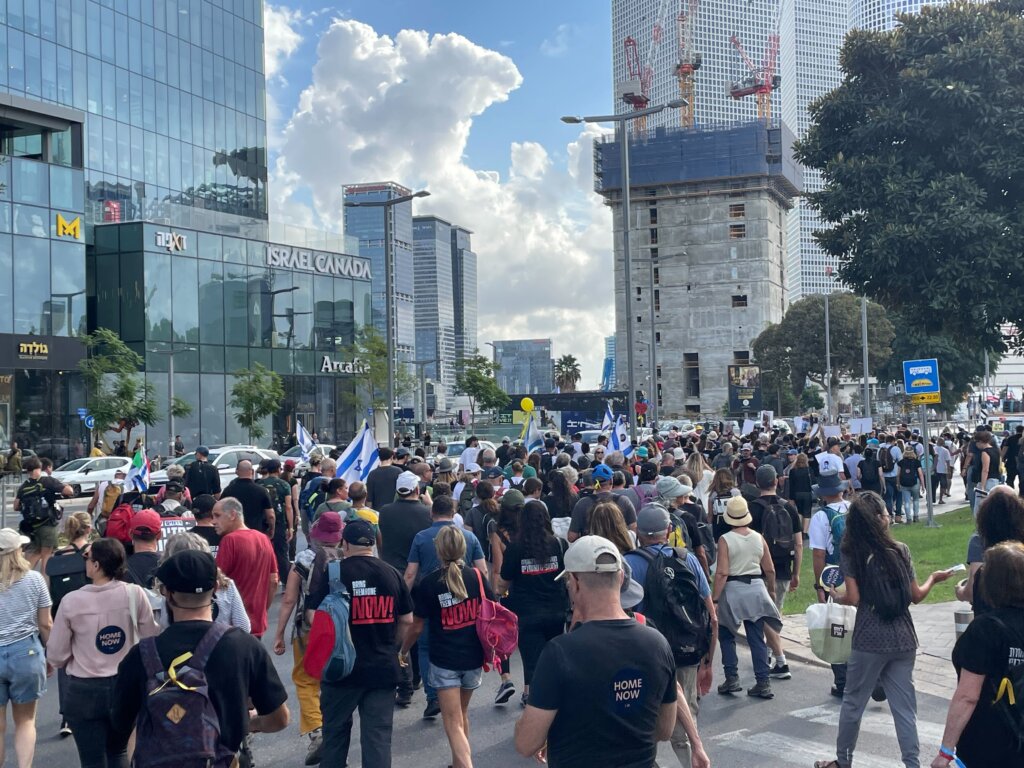
But the families said the deal should be rejected if hostages still remain in captivity. Hundreds of marchers chanted “now” and “all of them” in Hebrew as they headed towards the Ayalon Highway in Tel Aviv on Tuesday afternoon.
Making a difference
Noam Alon, the boyfriend of 27-year-old Inbar Haiman, who was kidnapped from the music festival, said every day that passes by without a deal is a “crime against humanity.” He said the march to Jerusalem is a call to immediate action and that Israel should pay any price — including the release of all Palestinian prisoners in Israel — to release all of the hostages. “We are expecting to see results,” Alon said. “The fact that they are there for nearly 40 days is a shame, and it must change now.”
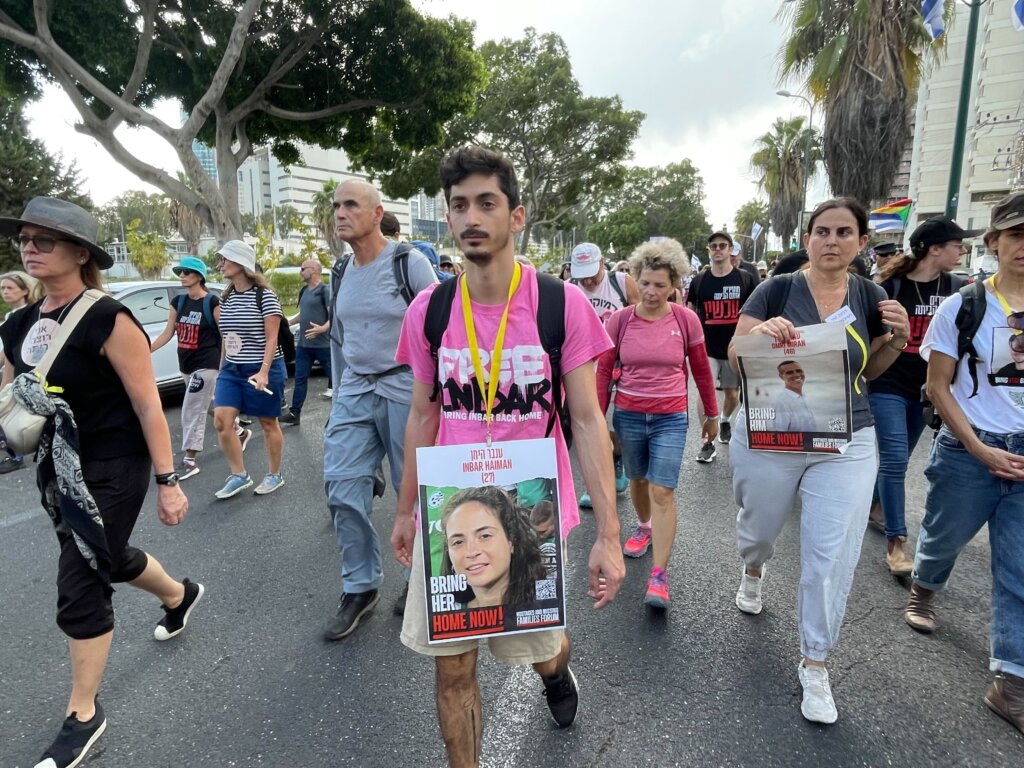
Alon said he expects Americans to support the campaign for the release of the hostages, whether it is through posting on social media, participating in protests, reaching out to Congress members or offering prayers. “Each and every person can make a difference to ensure that these innocent citizens are suffering in captivity for any longer,” he said.
In Washington, D.C. Tuesday, tens of thousands of American Jews and others are gathering on the National Mall to demand the release of the hostages, speak out against antisemitism and support Israel.
Naomi Sharona Levy, a friend of the Bibas family of Nir Oz Kibbutz, who were abducted by Hamas, said the government should make the release of the hostages its top priority. Bibas family members in captivity include 10-month-old Kfir, four-year-old Ariel, and their parents Shiri and Yarden. The grandparents, Yossi and Margit Silberman, were killed during the attack.
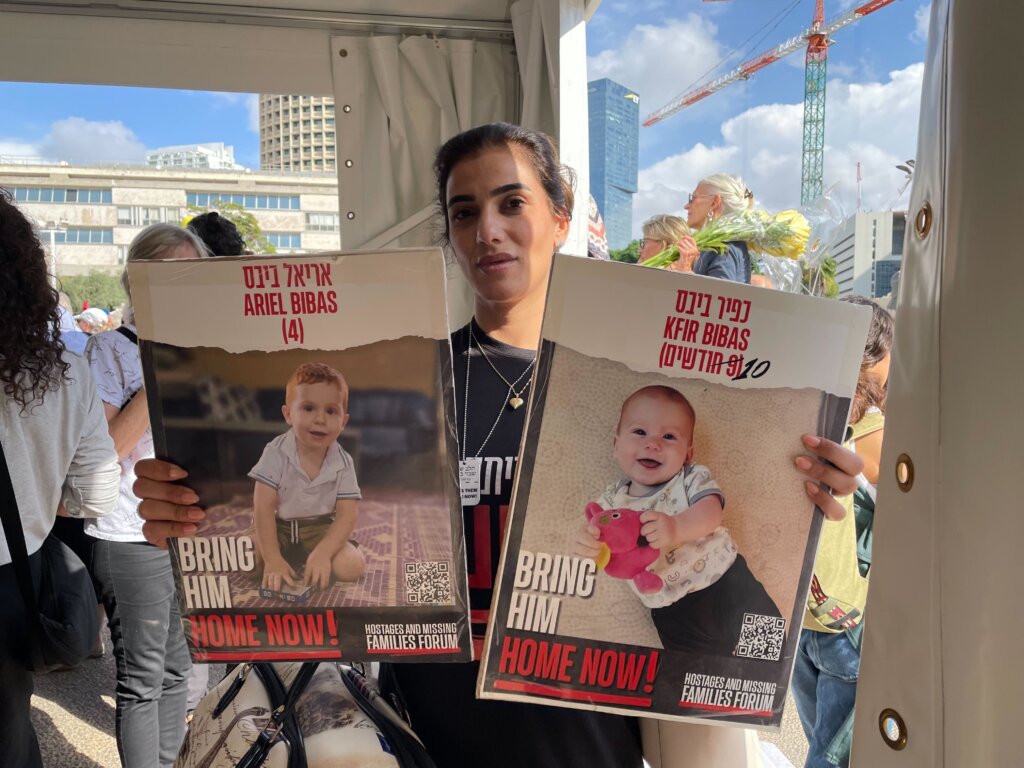
Levy said she’s encouraged by the international media’s coverage of the hostages’ plight and support from ordinary citizens around the world. But she said she would be disappointed if that support doesn’t influence the government to do more.
‘Part of Am Yisrael’
At least nine Americans are believed to be held hostage by Hamas, including three-year-old Abigail Edan, whose parents were killed in the attack on Kibbutz Kfar Azza. President Joe Biden mentioned Edan in a phone call with Qatari Amir Sheikh Tamim Bin Hamad Al-Thani, on Sunday. Qatar has become a key intermediary in the Israel-Hamas war, leading indirect talks between Israel and Hamas over the hostage situation.
Among the participants at the march kickoff event was a group of Orthodox women from Brooklyn who came to Israel to express solidarity with the families who are suffering. Julia Dweck, a member of Brooklyn’s Syrian Jewish community, said the delegation of about 25 women traveled to Israel to support widows who lost their husbands on Oct. 7 and in battle, and mothers who have loved ones in Gaza.
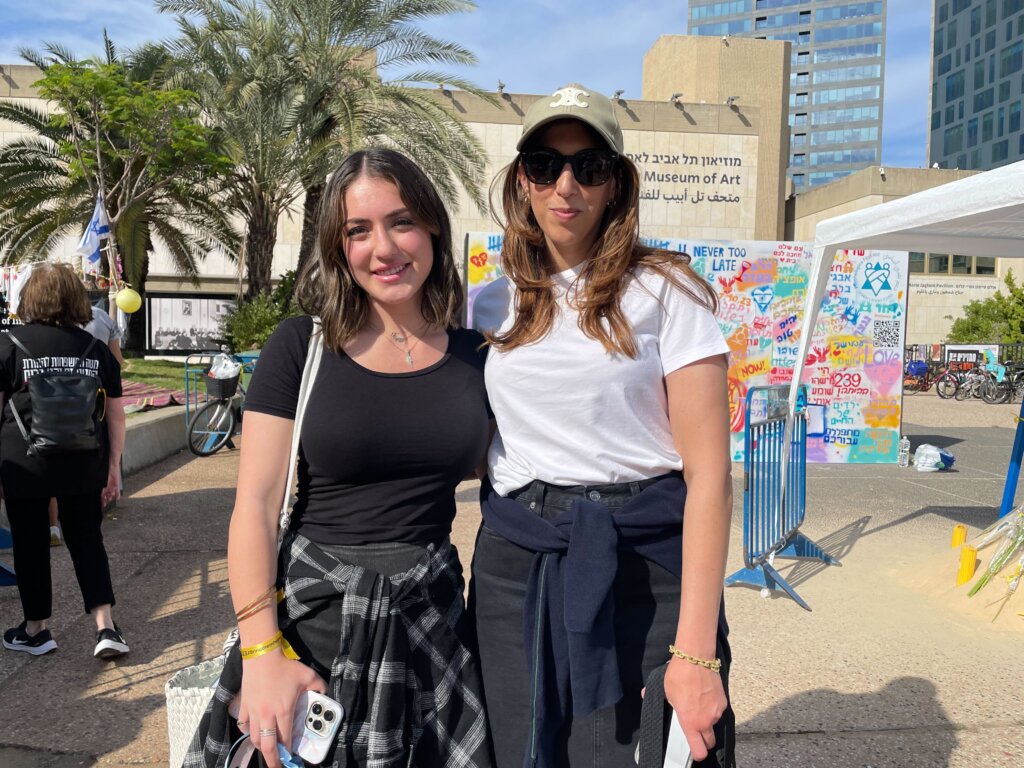
Linda Abraham, a 22-year-old who works at L’Oréal, a cosmetics company, said it was important to show that American supporters of Israel don’t just come for celebrations and joyous occasions but also during hard times. “If we can’t come for the hard items in Israel then how can we say we are part of Am Yisrael,” she said. “And if you can’t come, do something wherever you are.”














